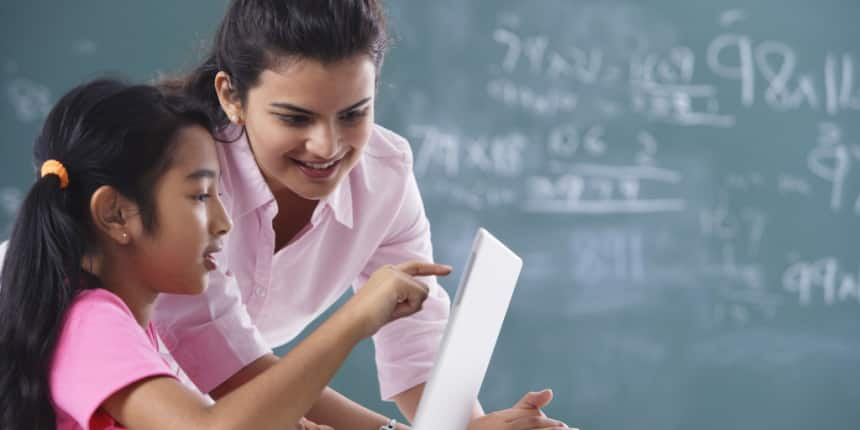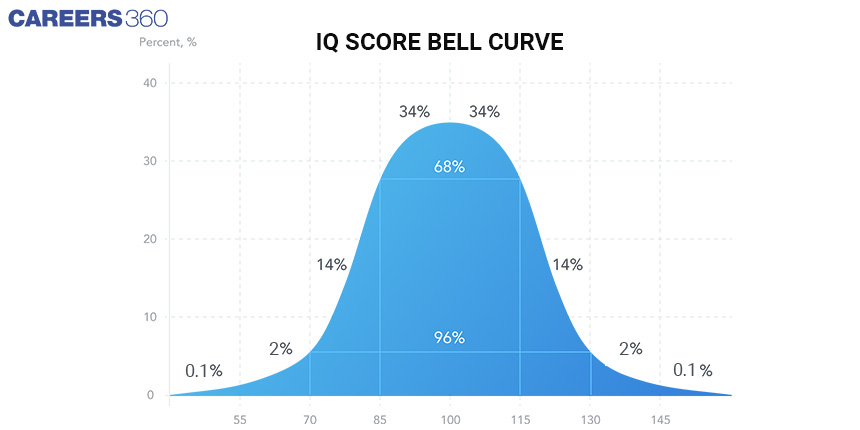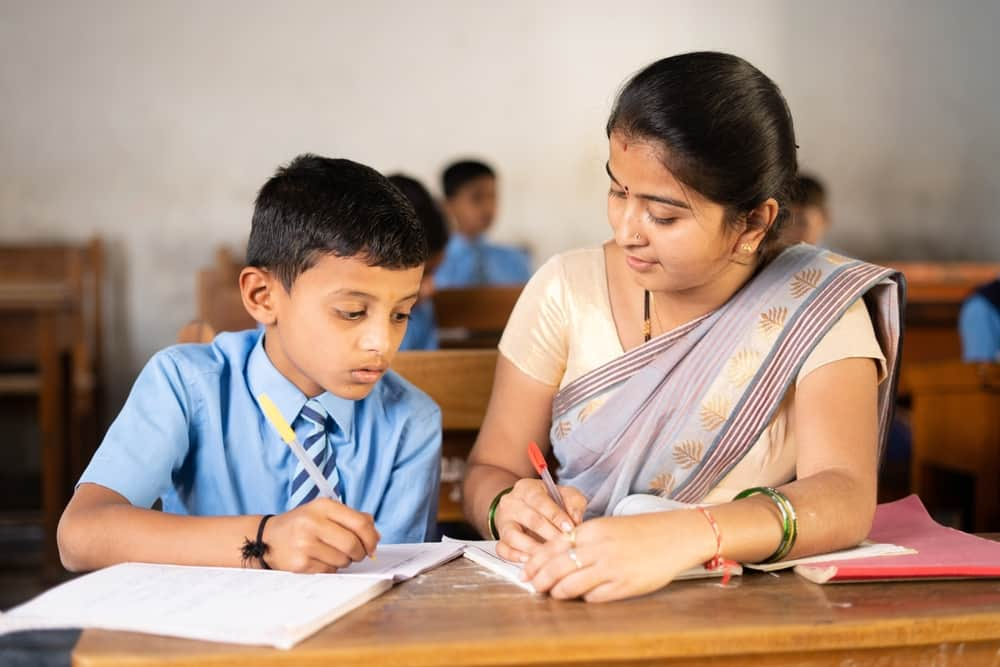Special Education For Intellectually Gifted Children: Tips For Teachers & Parents
Every parent dreams of an achiever of a child as the latter passes through numerous developmental stages. There are expectations varying from realistic to unrealistic along with hyper or under-vigilant parenting. Attainment of age-appropriate developmental milestones is an important feature of growth and maturation for all. Each stage is reflective of various domains of human behaviour with its components of cognition, motor skills as well as language and speech development. The facets of communication, problem solving, learning and mobility are crucial indicators of a person’s functional ability and independence. Linked to all this is the human brain, the very core of intelligence.

How Do We Define IQ?
As David Wechsler defines it, “Intelligence is the global capacity of the individual to act purposefully, to think rationally and to deal effectively with his environment.” It is a measurable entity and the score attained is known as ‘intelligence quotient’ or IQ. IQ assessments are undertaken under specific conditions and for a purpose. It falls under a range from normal to subnormal. Being a bell-shaped curve (IQ when plotted graphically), most of the population is bunched in the middle or average category with a relatively smaller number at the two ends of the curve.
 Source: IQ Test Prep
Source: IQ Test Prep
Who Are The Intellectually Gifted?
The intellectually gifted are a segment which is reflected on the higher IQ end of the curve and this article highlights the support needed for optimal scholastic performance of intellectually gifted children. Although everyone aspires for giftedness or superior intelligence, the challenges associated with such traits are rarely considered. Superior intelligence can produce complex outcomes impacting the intellectually gifted child’s school performance as well as personal well-being.
Also Read | Signs Your Child May Be Gifted
Challenges For The Intellectually Gifted
Stronger grasp, higher order thinking, critical learning and problem solving beyond the child’s peer group can be a boon as well as a bane for a person who is intellectually gifted
- With the majority of schools following a conventional academic pedagogy, the interest of an intellectually gifted child may soon wane due to this pedestrian, rote-oriented approach to learning. Such a curriculum may be too simple for a sharp mind that is geared towards a higher level of thinking and comprehension. Additionally, large classroom size, where individual attention by the teacher is not possible, can lead to feelings of neglect in intellectually gifted children who have deep inner awareness and sensitivity.
- Gradually, a mismatch starts setting in between a child’s capability and his or her academic performance. Such a mismatch can have negative consequences on the intellectually gifted child.
- Complaints from school or a child’s refusal to attend school can be baffling for a parent who takes great pride in his or her intellectually gifted child displaying stupendous abilities.
- Parenting can be confounding as it is and in cases where the trajectory of a child’s growth is impacted by his or her exceptional ability in certain domains, the task becomes a little more arduous.
Possible Problem Behaviours
Some of the most commonly manifested negative behaviours by intellectually gifted children unable to adapt or live up to expectations are anger, defiance, anxiety and seclusion. The clinical signs of bruxism, enuresis, tics, sleep disturbance and appetite problems may be present too. Under-performance in school, poor social relations, and conflict with their family often become a norm. Appropriate and timely intervention plays a significant role in mitigating the downward spiral of academic, personal and social well-being of intellectually gifted students.
Also Read | Identifying Signs Of Learning Disability In Your Child
 Schools Have A Major Role To Play In Optimising The Learning Of An Intellectually Gifted Child
Schools Have A Major Role To Play In Optimising The Learning Of An Intellectually Gifted Child
Educating The Intellectually Gifted
Schools have a major role to play in optimising the learning and education of each child. Here are a few ideas that can be incorporated to ensure well-being of the intellectually gifted segment:-
Differential Approach | A differential approach which focuses on individual needs of an intellectually gifted student, within a common environment, can be adopted by schools. It is incorporated in classrooms by the teachers and is based on the concepts of readiness and interests.
Continuous assessment of targets, learning process, and motivation displayed helps in paving the way for smooth learning for each student. Feedback, monitoring intellectually gifted student’s strengths and deficits, style of learning, and sustaining their attention are helpful tools for a teacher in enhancing learning experience in the classroom.
Enrichment Activities | These can be introduced in the form of projects, demonstrations, and field visits to expand on intellectually gifted students' learning experience. These can be of varying difficulty levels wherein students are encouraged to apply newer concepts and independent thinking. Flexibility in designing and presenting their assignments within the curriculum can be a great tool to tap into the flair and achievement potential of an intellectually gifted student.
Also Read | Use These 4 Tips To Help Your Child Plan Their Career
Supplemental Learning Materials | These can be used to broaden the gifted student’s area of interest. It can act as a token for positive behaviour in the classroom, which in turn, reinforces the intellectually gifted student’s scholastic performance.
Grouping | This can be done in a way such that students with shared interests work together on common tasks. This leads to peer formation and improved interpersonal interaction for the gifted children.
Advanced Classes | These can be fruitful for intellectually gifted children and they can be encouraged to take part in various courses and competitions.
Mentorship Programme | These can be offered to intellectually gifted students wherein a buddy can be assigned to act as a guide and a link between the school and the professional world. This relationship of trust will be geared towards enhancing academic, social and personal well-being of the mentee.
Technology | Needless to say, technology is a powerful tool and can be used to open up a whole new world of opportunities and growth for intellectually gifted children. With its endless scope, a plethora of activities and avenues can be introduced in a classroom as well as the home environment to nurture intellectually gifted students.
Also Read | How To Help Your Child Nurture Their Mental Health
All children need to grow, thrive and attain their optimal potential. Giftedness without any disabilities does not really call for special education. Yet, a need may be felt for the same due to asynchronous growth vis-a-vis their mental ability. A curious mind with well-developed thinking and imagination will seek an invigorating environment to thrive meaningfully and that may not be entirely possible in the humdrum of a regular school. Special education support can enhance the learning experience of intellectually gifted students which in turn is reflected in their social, emotional and psychological well-being. Additionally, potential learning gaps can be plugged well in time to the benefit of a child’s overall scholastic performance. However, utilisation of special education services will depend to some extent on the resources of a parent too as the cost may be beyond the means of some families. Hence, the need for intellectually gifted student’s education in the realms of regular schools remains significant and cannot be negated.
Dr. Sanjana Seth is a Psychologist and Psychotherapist, registered with RCI, and holds more than two decades of practising experience with the healthcare organisations of the Armed Forces, as well as those operating as private. She is skilled in administering psychological assessments, providing therapeutic intervention and psychoeducation via talks, lectures, workshops, and literary articles. She has worked extensively for children with special needs, and has taught Psychology to students at undergraduate and postgraduate levels.
Applications for Admissions are open.
As per latest syllabus. Physics formulas, equations, & laws of class 11 & 12th chapters
JEE Main Important Chemistry formulas
Get nowAs per latest syllabus. Chemistry formulas, equations, & laws of class 11 & 12th chapters
JEE Main high scoring chapters and topics
Get nowAs per latest 2024 syllabus. Study 40% syllabus and score upto 100% marks in JEE
JEE Main Important Mathematics Formulas
Get nowAs per latest syllabus. Maths formulas, equations, & theorems of class 11 & 12th chapters
